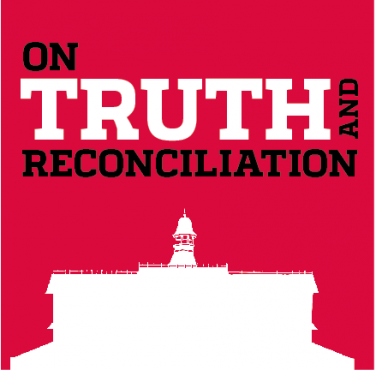On June 2, the Truth and Reconciliation Commission of Canada (TRC) released their summary report detailing six years of testimony from residential school survivors. The report comes with 94 recommendations to federal, provincial, territorial, and Aboriginal governments as a call to action, so that a “respectful and healthy relationship amongst people” may be established.
The report is nothing short of damning, stating that for over a century, “the goals of Canada’s Aboriginal policy were to eliminate Aboriginal governments; ignore aboriginal rights; terminate the Treaties; and . . . cause Aboriginal peoples to cease to exist as distinct legal, social, cultural, religious, and racial entities in Canada.” Ultimately, the report calls these actions for what they are: a policy of cultural genocide.
For those unaware of this black mark on Canada’s history, the report will hopefully bring to light just how utterly appalling our government’s treatment of Aboriginal people has been — not only at the turn of the 20th century, but in recent years as well. For those who are aware, well . . . It’s unfortunately nothing new.
Consider our government’s stubborn refusal to open any sort of investigation into murdered and missing indigenous women in Canada. In a December 2014 interview with Peter Mansbridge, Stephen Harper said of those missing women, “it isn’t really high on our radar, to be honest.”
Well, at least everyone’s being honest.
Go back further to June 11, 2008, and we see Mr. Harper as a shining beacon of inaction yet again, as he offered a formal apology to former students of residential schools, and promptly continued to do nothing substantial in the years since.
Go back further still to 1996, when the Report of the Royal Commission on Aboriginal Peoples called for Canadians to start on a path of reconciliation in its relationship with Aboriginal peoples; as the Truth and Reconciliation Commission report states, the majority of that report’s recommendations were never implemented. This new report, then, offers a “rare second chance to seize a lost opportunity for reconciliation.”
Canada is not ready for reconciliation yet, but as TRC chair Justice Murray Sinclair said on Tuesday, “it is a Canadian problem. It involves all of us.” Hopefully, the report does not fall on deaf ears; during a standing ovation, it was reported that Aboriginal Affairs Minister Bernard Valcourt remained seated — a disappointing display of pettiness if there ever was one.
In the end, Sinclair’s words offer reassurance to those daunted by what needs to be done: “Our leaders must not fear this onus of reconciliation. The burden is not theirs to bear alone, rather, reconciliation is a process that involves all parties of this new relationship.” With a federal election on the horizon, and the call for Aboriginal justice louder than it has ever been, the chance to make a real change is there. Let us see that Canada doesn’t ignore it again.








